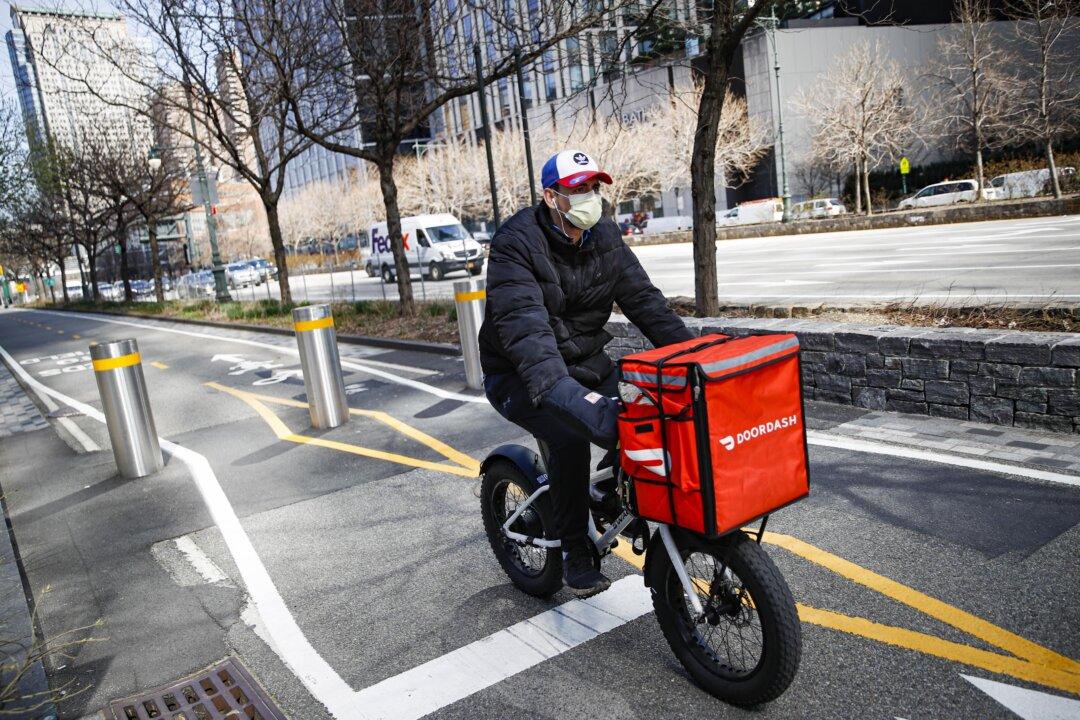A New York state judge has temporarily paused a law that would have raised the minimum wage to nearly $18 an hour for food delivery workers in New York City.
The ruling is in favor of four delivery food services—DoorDash, Grubhub, Uber, and New York-based Relay Delivery—which filed lawsuits to temporarily block the law.




